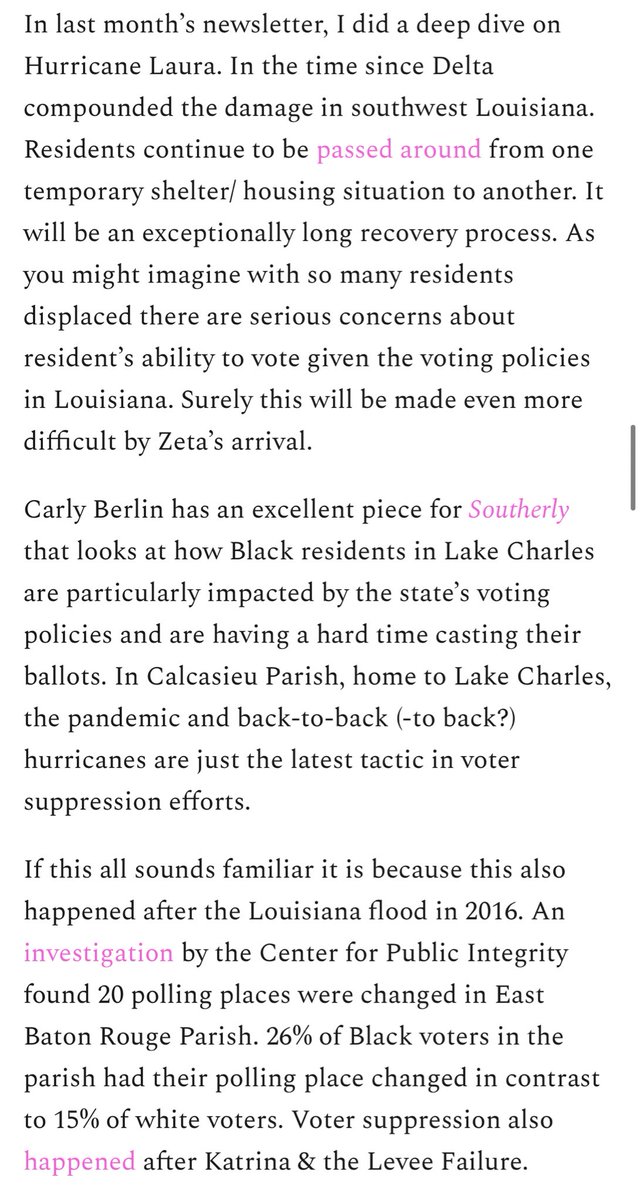
Hi.
COULD SOMEONE PLEASE GIVE US MONEY TO STUDY HOW CLIMATE CHANGE WILL IMPACT THE EMERGENCY MANAGEMENT SYSTEM?
We don't even need that much money to do this!
COULD SOMEONE PLEASE GIVE US MONEY TO STUDY HOW CLIMATE CHANGE WILL IMPACT THE EMERGENCY MANAGEMENT SYSTEM?
We don't even need that much money to do this!
ok. I know I'm screaming but I'm actually 100% serious.
@BillGates -- I hear you're into climate adaptation now. Great! Give us money!!
@BillGates -- I hear you're into climate adaptation now. Great! Give us money!!
There is so little money being spent on disaster research and there's even less being spent specifically on *emergency management*.
I'm just completely out of ways of trying to explain why this is urgent research! Look around!!
I'm just completely out of ways of trying to explain why this is urgent research! Look around!!
Y'all... I'm talking about *empirical* research that is built off of existing emergency management theory.
We're not doing this "lessons learned" nonsense.
We're not doing this "lessons learned" nonsense.
There has to be a millionaire out there who feels guilty about their private jet emissions. Donate your guilt away. We just need to hire a team of grad students (with a liveable wage)!
Every time someone asks me a question about emergency management that I can't answer because it hasn't been studied I want to scream. I know how to get the answer to your question but I can't because there's no funding. This is such a solvable problem.
Here's a personal example of how extreme this problem is... I track all of my work hours and last year I spent 977 hours doing research.
None of it was funded except for one project that had a $1000 grant (it paid for two grad assistants). That's it.
None of it was funded except for one project that had a $1000 grant (it paid for two grad assistants). That's it.

I didn't think this many people would take an interest in this.
There's SO much disaster research. One problem we have is that so many disciplines do this work that we often talk past each other. One thing that emergency management researchers do is synthesize all this work.
There's SO much disaster research. One problem we have is that so many disciplines do this work that we often talk past each other. One thing that emergency management researchers do is synthesize all this work.
Synthesizing existing research doesn't take much money (just salaries, really!) but it does take TIME. It's also not something that funders are interested in... yet, it's the work that has to be done to do theory building.
Then you get to go out and collect more data. THEN you get to bring the work into practice (ideally you're talking with them throughout the project). THEN you get to policy recommendations.
If you want *good* emergency management reform then you have to do all of this first.
If you want *good* emergency management reform then you have to do all of this first.
If you've never done this kind of work you might think this sounds easy but it's not. It's hard, painstaking work, which takes TIME and a lot of hands (minds). There are people who WANT to do this work. There is not funding to pay them to do this work.
That's wrong.
That's wrong.
Anyway, if you want to check out some disaster research in 2018 I posted one journal article a day for the whole year. It's just a sampling but you can check it out here:
https://twitter.com/SamLMontano/status/947868566308704257
• • •
Missing some Tweet in this thread? You can try to
force a refresh




